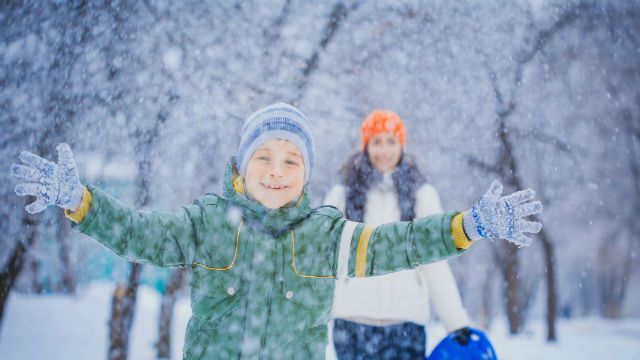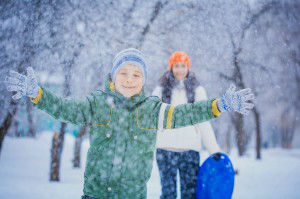
Winter can be a season full of fun activities like sledding, snowshoeing and skiing. Unfortunately, it also comes with some serious hazards to your health. While this certainly doesn’t mean you can’t have fun, the cold season must be approached with caution.
Here are some safety tips to keep in mind this season.
Stay warm
First you get a little wet, then you begin to feel the cold. Next thing you know, you could be coming down with a case of hypothermia. Hypothermia occurs when the body begins to lose heat at a faster than normal rate. The symptoms of hypothermia include dizziness, nausea, shivering, irregular heartbeat, and sluggishness.
Safety Tip: Always dress warmly if you will be outdoors for a lengthy period of time. If your clothing does become wet, be sure to change it as soon as possible. Do not stay outdoors for prolonged periods of time if you can help it – this will stress your system. If you do feel the beginnings of hypothermia, do not ignore it: warm your body up as quickly as possible.
Drive safely
According to a report by IcyRoadSafety.com, there were 458 deaths due to icy roads in the United States during the 2009-2010 winter season. While icy roads can occur anywhere in winter, the highest incidences took place in the Midwestern and Plains states. According to the U.S. Department of Transportation, more than 116,800 people are injured in motor vehicle crashes on snowy roads each year.
Safety Tip: When driving in winter, always be watchful and alert. Slow down when road conditions are questionable to help you stay in control. Being prepared is vitally important to surviving if you are in a crash. Make sure you keep your vehicle in proper working order with regular maintenance checks. Also, consider packing a winter survival kit that includes a shovel, sand or kitty litter, road flares, a flashlight, a first aid kit, blankets and non-perishable food items.
A little precaution goes a long way
 Winter sports can be a ton of fun, but they are notorious for leading to emergency room visits. A study in the journal Pediatrics stated that approximately 229,000 children visit the ER every year due to sledding accidents. Wintertime activities can cause everything from sprains and pulled muscles to broken bones and spinal injuries.
Winter sports can be a ton of fun, but they are notorious for leading to emergency room visits. A study in the journal Pediatrics stated that approximately 229,000 children visit the ER every year due to sledding accidents. Wintertime activities can cause everything from sprains and pulled muscles to broken bones and spinal injuries.
Safety Tip: Always wear protective gear like helmets and goggles when applicable. If sledding or skiing, be sure to go on trails that are clear of obstacles like trees. Don’t go alone, or at least be sure someone knows where you are and when you are expected to be back in case of an accident.
It pays to be prepared
Whenever you go out in the winter weather, always wear appropriate outdoor clothing with layers, as well as mittens, hats and waterproof boots. Be sure to pay attention to how cold your extremities are feeling, particularly your hands and feet. If you begin to feel cold, tired or wet, be sure to get inside ASAP and warm up.
-The Alternative Daily
Sources:
http://www.cbsnews.com/pictures/winter-weather-health-hazards
http://www.cdc.gov/features/winterweather
http://icyroadsafety.com/fatalitystats.shtml
https://ntsi.com/quick-links/safety-articles/winter-driving

